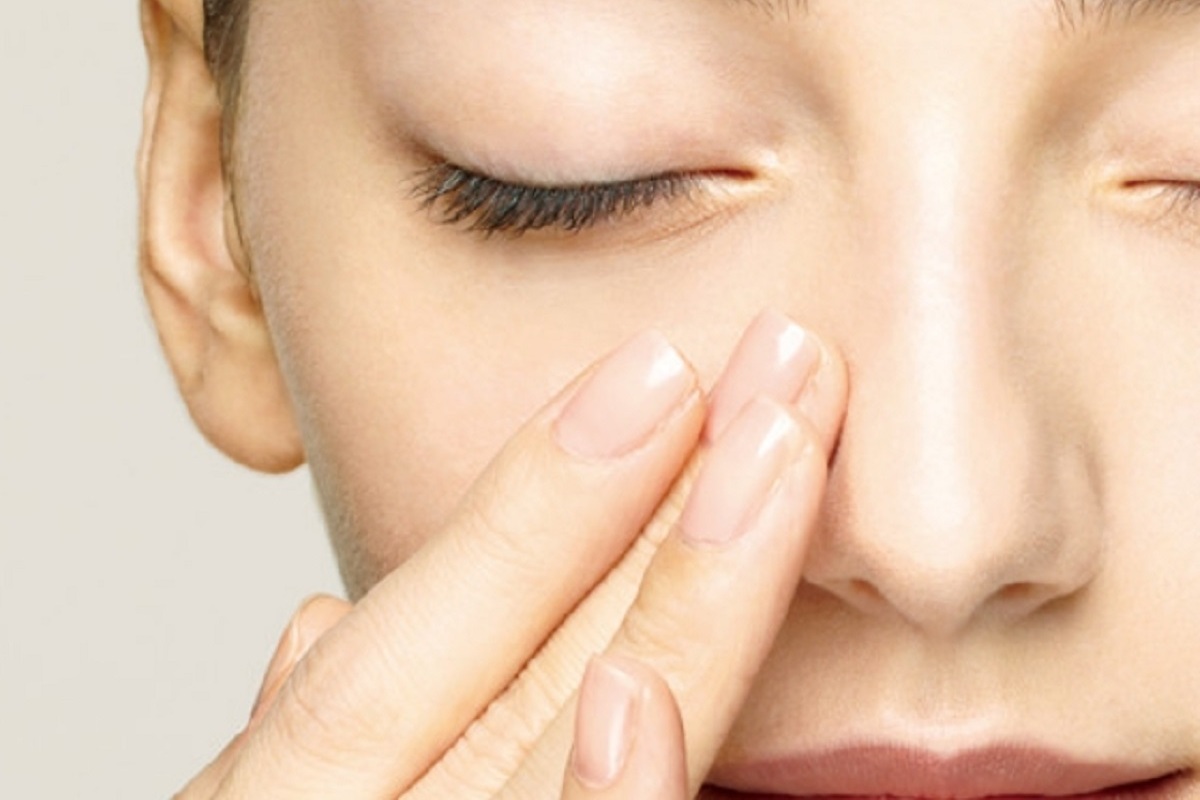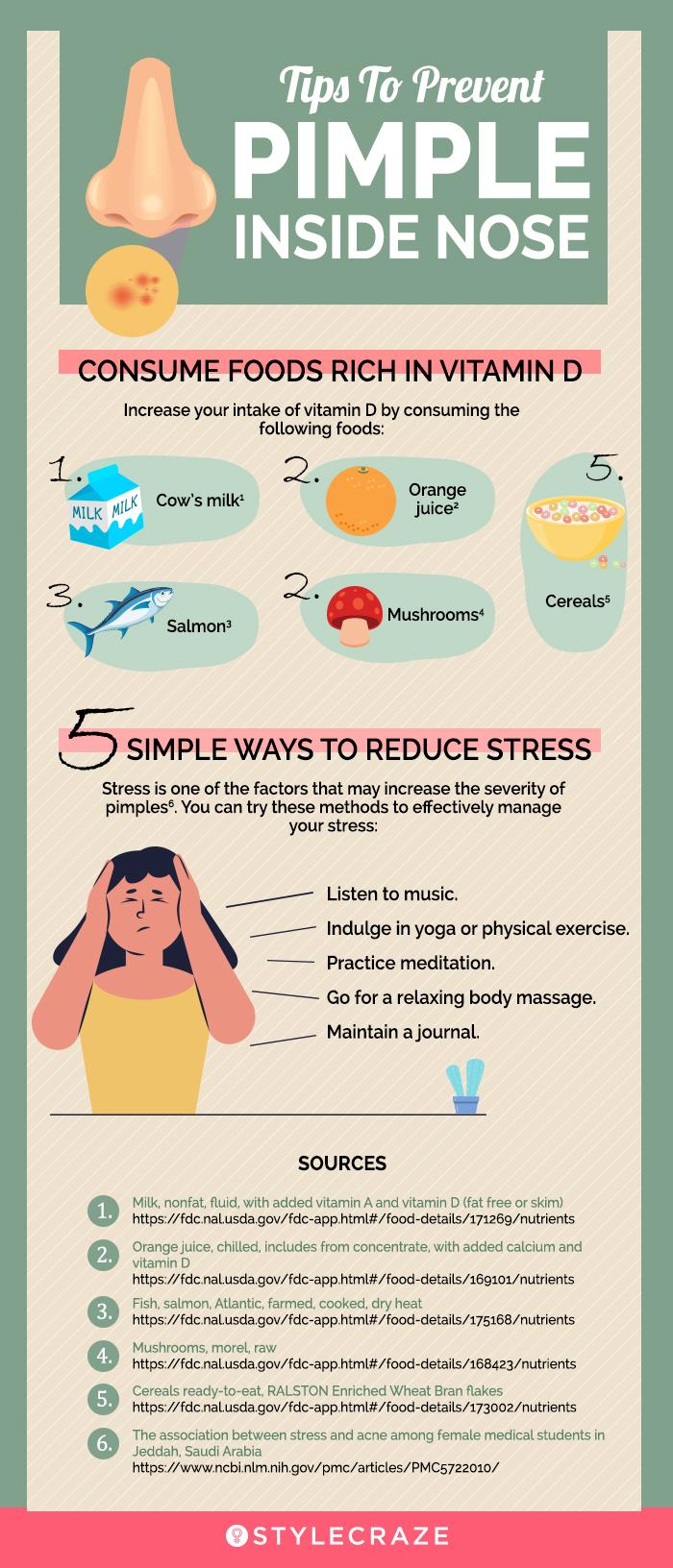Dealing with a pimple inside your nose can be one of the most uncomfortable and painful experiences. Whether it's caused by blocked pores, bacteria, or irritation, this issue is more common than you might think. However, understanding the causes and treatments can help you manage and prevent these pesky pimples effectively.
Pimples inside the nose, also known as nasal pimples, occur when hair follicles or oil glands become clogged with dirt, oil, or dead skin cells. While they may seem minor, these pimples can lead to significant discomfort and even infections if not treated properly.
In this article, we will explore everything you need to know about pimples inside the nose, from the causes and symptoms to the best treatments and prevention strategies. Let's dive in!
Read also:Understanding Kamala Harris And Her Biological Children
Table of Contents
- Biography
- What is a Pimple Inside the Nose?
- Common Causes of Pimples Inside the Nose
- Symptoms and Signs
- Diagnosis
- Treatment Options
- Home Remedies
- Prevention Tips
- Potential Complications
- Frequently Asked Questions
What is a Pimple Inside the Nose?
A pimple inside the nose is essentially a small, localized infection or inflammation that occurs when a hair follicle or oil gland becomes blocked. This blockage can trap bacteria, oil, and dead skin cells, leading to the formation of a painful bump. Unlike external pimples, those inside the nose are often more sensitive due to the delicate nature of nasal tissue.
How Do Pimples Form Inside the Nose?
Pimples inside the nose form similarly to those on other parts of the body. However, the confined space and sensitivity of the nasal cavity make them particularly uncomfortable. Here’s how they typically develop:
- Hair follicles or oil glands become blocked by dirt, oil, or dead skin cells.
- Bacteria, such as Staphylococcus aureus, may accumulate in the blocked area.
- Inflammation occurs as the body attempts to fight off the infection.
Understanding the process of pimple formation can help you take proactive steps to prevent them.
Common Causes of Pimples Inside the Nose
Several factors can contribute to the development of pimples inside the nose. Here are some of the most common causes:
1. Poor Hygiene
Not maintaining proper nasal hygiene can lead to the accumulation of dirt and bacteria, increasing the likelihood of pimples forming. Regularly cleaning your nose can help prevent this issue.
2. Hair Follicle Infections
Infections of the hair follicles inside the nose, also known as folliculitis, are a common cause of nasal pimples. These infections can be triggered by bacteria or fungi.
Read also:Angelina Jolie Horoscope Uncover Your Astrological Insights
3. Nasal Irritation
Irritation from factors such as dry air, allergies, or aggressive nose blowing can damage the nasal lining, making it more susceptible to pimples.
Symptoms and Signs
Recognizing the symptoms of a pimple inside your nose is crucial for prompt treatment. Here are some common signs:
- Localized pain or tenderness
- Swelling or redness in the affected area
- Visible pus or discharge
- Difficulty breathing through the affected nostril
If you experience any of these symptoms, it’s important to address the issue before it worsens.
Diagnosis
Diagnosing a pimple inside the nose typically involves a physical examination by a healthcare professional. In some cases, additional tests may be required to rule out more serious conditions. Here’s what you can expect:
1. Physical Examination
Your doctor will examine the affected area to determine the severity of the pimple and whether it’s infected.
2. Laboratory Tests
In cases where infection is suspected, a sample of the pus or discharge may be sent to a lab for analysis to identify the causative bacteria.
Treatment Options
Treating a pimple inside the nose requires a combination of self-care and, in some cases, medical intervention. Here are some effective treatment options:
1. Over-the-Counter Medications
Topical creams containing benzoyl peroxide or antibiotics can help reduce inflammation and kill bacteria. Always follow the instructions provided by the manufacturer.
2. Prescription Medications
For more severe cases, a doctor may prescribe oral antibiotics or stronger topical treatments to eliminate the infection.
3. Professional Drainage
In cases where the pimple is large or abscessed, a healthcare professional may need to drain it to prevent further complications.
Home Remedies
While over-the-counter medications and medical treatments are effective, there are also several home remedies you can try to alleviate the discomfort of a pimple inside the nose:
1. Warm Compress
Applying a warm compress to the affected area can help reduce pain and promote healing. Do this several times a day for best results.
2. Saline Nasal Spray
A saline nasal spray can help keep the nasal passages moist and clean, reducing the risk of further irritation.
3. Avoid Picking
Picking or squeezing the pimple can worsen the condition and increase the risk of infection. Resist the urge to touch it.
Prevention Tips
Preventing pimples inside the nose involves maintaining good nasal hygiene and avoiding behaviors that can irritate the nasal lining. Here are some tips:
1. Regular Cleaning
Use a gentle saline solution to clean your nasal passages regularly, especially if you suffer from allergies or sinus issues.
2. Avoid Irritants
Stay away from strong chemicals, perfumes, and other irritants that can damage the nasal lining.
3. Stay Hydrated
Drinking plenty of water helps keep your nasal passages moist, reducing the risk of dryness and irritation.
Potential Complications
While most pimples inside the nose are harmless and resolve on their own, some can lead to complications if left untreated. Here are a few potential issues to watch out for:
1. Cellulitis
This is a bacterial skin infection that can spread rapidly and cause serious health problems if not treated promptly.
2. Cavernous Sinus Thrombosis
In rare cases, an untreated infection in the nose can lead to a life-threatening condition called cavernous sinus thrombosis, which involves blood clots forming near the brain.
Frequently Asked Questions
1. Can I Pop a Pimple Inside My Nose?
No, popping a pimple inside your nose can lead to further infection and complications. It’s best to let it heal naturally or seek medical advice if necessary.
2. How Long Do Pimples Inside the Nose Last?
Most pimples inside the nose resolve within a week or two. However, if the pimple persists or worsens, consult a healthcare professional.
3. Are Pimples Inside the Nose Contagious?
Pimples themselves are not contagious, but the bacteria causing the infection can spread through direct contact. Practice good hygiene to prevent this.
Conclusion
In conclusion, pimples inside the nose are a common issue that can cause significant discomfort if not managed properly. By understanding the causes, recognizing the symptoms, and following effective treatment and prevention strategies, you can minimize the impact of these pesky pimples on your daily life.
We encourage you to share this article with others who may find it helpful. If you have any questions or personal experiences to share, feel free to leave a comment below. Together, we can promote better nasal health and well-being!


